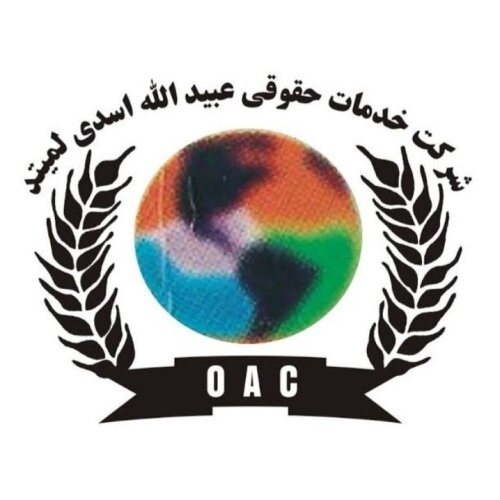Best Debt & Collection Lawyers in Afghanistan
Share your needs with us, get contacted by law firms.
Free. Takes 2 min.
Or refine your search by selecting a city:
List of the best lawyers in Afghanistan
About Debt & Collection Law in Afghanistan
Debt and collection laws in Afghanistan are primarily grounded in the country’s civil law system, which is influenced by Islamic law. These laws regulate the manner in which debts are incurred and collected, providing legal frameworks for both debtors and creditors. The legal environment surrounding debt and collection is evolving as Afghanistan continues to develop its financial sectors and regulatory procedures. It is crucial for individuals and businesses engaging in financial transactions to understand their rights and obligations under these laws.
Why You May Need a Lawyer
The complexities of debt and collection law in Afghanistan can necessitate legal assistance in various situations. Common scenarios where one might need a lawyer include:
- Negotiating a debt settlement or restructuring plan.
- Addressing disputes over the terms and conditions of a loan agreement.
- Defending against a debt collection lawsuit.
- Assisting with bankruptcy proceedings or seeking insolvency protection.
- Understanding creditor rights and the enforcement of judgments.
- Dealing with harassment or unethical practices by debt collectors.
Local Laws Overview
Key aspects of local laws related to debt and collection in Afghanistan include:
- Debt Agreements: Legal requirements for entering into valid credit and loan agreements.
- Interest Rates: Regulations governing the interest rates that can be charged on loans.
- Debt Collection Practices: Guidelines and restrictions on how debts can be collected, including prohibition of unlawful harassment and intimidation.
- Bankruptcy and Insolvency: Processes for individuals and businesses seeking relief from insurmountable debts.
- Dispute Resolution: Mechanisms for resolving financial disputes, including mediation and court proceedings.
Frequently Asked Questions
What should I do if I cannot pay my debts?
It is advisable to communicate with your creditors to negotiate new terms or seek legal assistance to explore options like debt restructuring or insolvency protection.
Are there laws protecting me from aggressive debt collectors?
Yes, Afghan laws prohibit harassment or abusive practices by debt collectors. Consult a lawyer if you feel your rights are being violated.
Can interest rates on loans be negotiated?
Interest rates can often be negotiated before entering into a loan agreement. Ensure that any agreement is documented and legally binding.
What is the process for declaring bankruptcy in Afghanistan?
The bankruptcy process typically involves demonstrating insolvency and applying through the appropriate legal channels. A lawyer can provide guidance specific to your situation.
How are disputes between a debtor and creditor resolved?
Disputes can be resolved through mediation, arbitration, or court proceedings, with the method often defined in the initial agreement.
What happens if I default on a loan?
Defaulting may lead to legal action from creditors, and it could damage your credit history. Legal advice can help mitigate consequences.
Can a creditor seize my property?
Asset seizure is possible if stipulated by a court order following legal processes. It is essential to understand these processes and your rights.
What influences a court’s decision in a debt-related case?
A court will consider the validity of debt agreements, the behavior of both parties, and adherence to legal protocols in debt collection.
How long does a debt collection lawsuit take?
The duration varies based on case complexity and court schedules. Legal counsel can provide an estimated timeline specific to your case.
Are there alternatives to traditional litigation for debt disputes?
Yes, alternatives include mediation and arbitration, which are often quicker and less adversarial than traditional court proceedings.
Additional Resources
For more information and assistance, consider these resources:
- Ministry of Justice of Afghanistan
- Central Bank of Afghanistan (Da Afghanistan Bank)
- Local legal aid organizations and law firms specializing in debt and financial law
- Afghan Lawyers Association, which may offer referrals and advice
Next Steps
If you require legal assistance in debt and collection matters, consider the following steps:
- Identify the key issues in your situation and gather relevant documentation.
- Research and reach out to legal professionals experienced in Afghan debt and collection law.
- Schedule consultations with prospective lawyers to discuss your case and ask about their experience and fees.
- Consider alternative dispute resolution options if they are appropriate for your case.
Approach the situation proactively to ensure your rights and interests are protected throughout the legal process.
Lawzana helps you find the best lawyers and law firms in Afghanistan through a curated and pre-screened list of qualified legal professionals. Our platform offers rankings and detailed profiles of attorneys and law firms, allowing you to compare based on practice areas, including Debt & Collection, experience, and client feedback.
Each profile includes a description of the firm's areas of practice, client reviews, team members and partners, year of establishment, spoken languages, office locations, contact information, social media presence, and any published articles or resources. Most firms on our platform speak English and are experienced in both local and international legal matters.
Get a quote from top-rated law firms in Afghanistan — quickly, securely, and without unnecessary hassle.
Disclaimer:
The information provided on this page is for general informational purposes only and does not constitute legal advice. While we strive to ensure the accuracy and relevance of the content, legal information may change over time, and interpretations of the law can vary. You should always consult with a qualified legal professional for advice specific to your situation.
We disclaim all liability for actions taken or not taken based on the content of this page. If you believe any information is incorrect or outdated, please contact us, and we will review and update it where appropriate.
Browse debt & collection law firms by city in Afghanistan
Refine your search by selecting a city.








